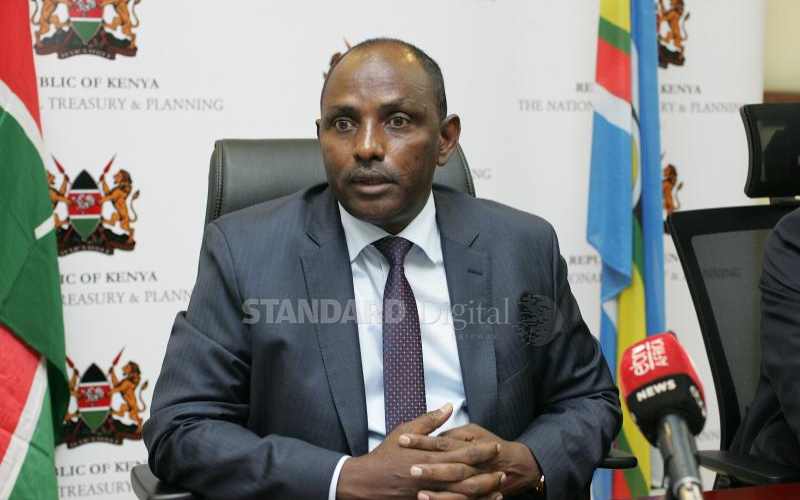×
The Standard e-Paper
Fearless, Trusted News

National Treasury CS Ukur Yatani during a briefing with Council of Governors on the county revenue allocation formula. [Wilberforce Okwiri,Standard]
When he took over from Henry Rotich as the Cabinet Secretary for National Treasury, Ukur Yatani was likened to the biblical Moses in that he was seen as the man to deliver Kenya out of what some analysts have described as “Eurobondage.”